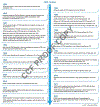CD55 in cancer: Complementing functions in a non-canonical manner
- PMID: 36216147
- PMCID: PMC11019835
- DOI: 10.1016/j.canlet.2022.215935
CD55 in cancer: Complementing functions in a non-canonical manner
Abstract
CD55, or decay accelerating factor, is a membrane lipid microdomain-associated, GPI-anchored protein implicated in the shielding of cells from complement-mediated attack via accelerating decay of C3 and C5. Loss of CD55 is associated with a number of pathologies due to hyperactivation of the complement system. CD55 is also implicated in cancer progression thought to be driven via its role in cell shielding mechanisms. We now appreciate that CD55 can signal intracellularly to promote malignant transformation, cancer progression, cell survival, angiogenesis, and inhibition of apoptosis. Outside-in signaling via CD55 is mediated by signaling pathways including JNK, JAK/STAT, MAPK/NF-κB, and LCK. Moreover, CD55 is enriched in the cancer stem cell (CSC) niche of multiple tumors including breast, ovarian, cervical, and can be induced by chemotherapeutics and hypoxic environments. CSCs are implicated in tumor recurrence and chemoresistance. Here, we review the unexpected roles of CD55 in cancer including the roles of canonical and noncanonical pathways that CD55 orchestrates. We will highlight opportunities for therapeutic targeting CD55 and gaps in the field that require more in-depth mechanistic insights.
Keywords: CD55; Cancer stem cell; Complement pathway; DAF; Decay accelerating factor.
Copyright © 2022 Elsevier B.V. All rights reserved.
Conflict of interest statement
Declaration of competing interest The authors declare that they have no known competing financial interests or personal relationships that could have appeared to influence the work reported in this paper.
Figures


References
-
- Hoffman EM, Inhibition of complement by a substance isolated from human erythrocytes. I. Extraction from human erythrocyte stromata, Immunochemistry 6 (1969) 391–403. - PubMed
-
- Ozen A, Comrie WA, Ardy RC, Dominguez Conde C, Dalgic B, Beser OF, Morawski AR, Karakoc-Aydiner E, Tutar E, Baris S, Ozcay F, Serwas NK, Zhang Y, Matthews HF, Pittaluga S, Folio LR, Unlusoy Aksu A, McElwee JJ, Krolo A, Kiykim A, Baris Z, Gulsan M, Ogulur I, Snapper SB, Houwen RHJ, Leavis HL, Ertem D, Kain R, Sari S, Erkan T, Su HC, Boztug K, Lenardo MJ, CD55 deficiency, early-onset protein-losing enteropathy, and thrombosis, N. Engl. J. Med 377 (2017) 52–61. - PMC - PubMed
-
- Sogabe H, Nangaku M, Ishibashi Y, Wada T, Fujita T, Sun X, Miwa T, Madaio MP, Song WC, Increased susceptibility of decay-accelerating factor deficient mice to anti-glomerular basement membrane glomerulonephritis, J. Immunol 167 (2001) 2791–2797. - PubMed
Publication types
MeSH terms
Substances
Grants and funding
LinkOut - more resources
Full Text Sources
Research Materials
Miscellaneous

